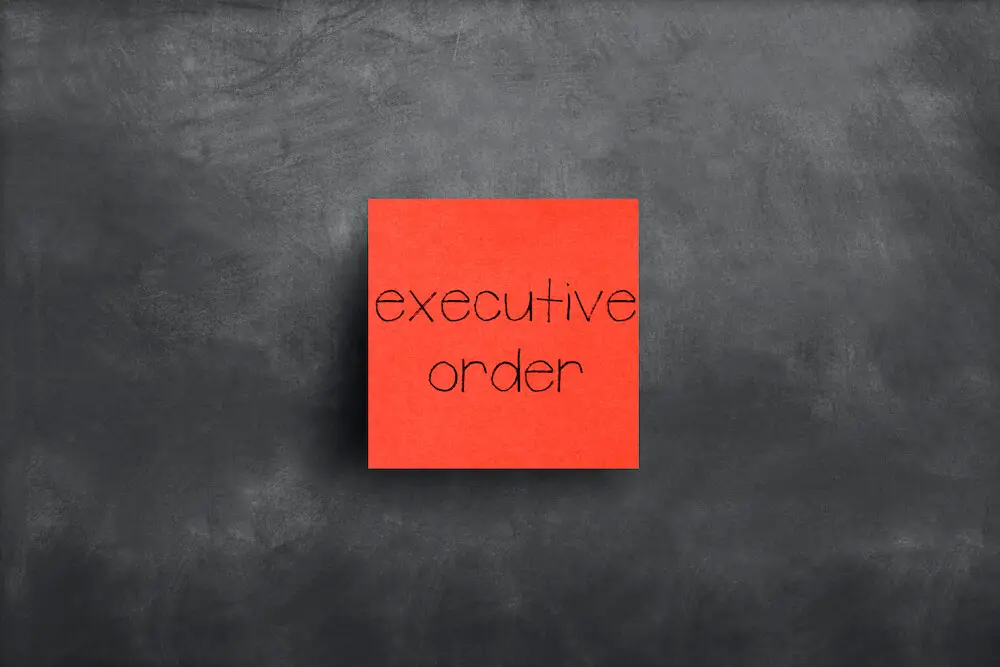The Office of Personnel Management (OPM) is following through with guidance to agencies for revoking Executive Orders issued during the Trump administration.
In May 2018, several Executive Orders were issued by President Trump restricting the activities of federal employee union representatives, particularly with regard to using “official time” and encouraging agencies to fire employees for poor performance rather than suspending them.
Different Approaches Under Two Administrations
The Orders issued during the Trump administration were designed for:
- “Developing Efficient, Effective, and Cost-Reducing Approaches to Federal Sector Collective Bargaining”;
- “Ensuring Transparency, Accountability, and Efficiency in Taxpayer-Funded Union Time Use” and,
- “Promoting Accountability and Streamlining Removal Procedures Consistent with Merit System Principles”.
President Biden’s emphasis, outlined in the introduction to his Executive Order, is:
- Expanding and encouraging unions and bargaining,
- Promoting “good administration”, and
- Applying “merit system principles”.
As expected, the guidance issued to agencies by OPM under President Biden expands on the philosophy of expanding and encouraging federal unions to bargain on a wide range of topics.
Encouraging Federal Employee Unions
The new OPM guidance to agencies is to “suspend, revise or rescind the actions covered in any agency policies, if applicable, implementing requirements pursuant to EO 13836.” The particular Order this is now rescinded was entitled Developing Efficient, Effective, and Cost-Reducing Approaches to Federal Sector Collective Bargaining.
The OPM guidance also essentially directs agencies to take a look at their labor relations policies over the last several years and to take action to change the policies to reflect the more favorable government sponsorship of federal employee union activities. In some cases, this will entail renegotiating labor contracts or taking action to pull back labor disputes pending before the Federal Service Impasses Panel.
The guidance also envisions expanding the scope of bargaining to include the “permissive topics” of bargaining. These are topics normally out of bounds for negotiation with a union but can be bargained if an agency wishes to do so. In effect, the new philosophy of the Biden administration is that agencies should open up bargaining on a wider variety of topics.
This philosophy is essentially the same policy as during the Obama and Clinton administrations.
Lifting Official Time Restrictions
With regard to the Executive Order entitled Ensuring Transparency, Accountability, and Efficiency in Taxpayer-Funded Union Time Use, the OPM guidance directs agencies to no longer enforce provisions of the Order requiring close supervision and proper use of official time by union representatives. Official time is a term used to describe time used by a federal employee union official while still being paid salary and benefits by the federal government.
In effect, to the extent possible, the new OPM guidance tells agencies to stop enforcing most of the restrictions imposed on unions during the Trump administration to create a more efficient government and to reduce government sponsorship of labor unions.
The new OPM guidance also rescinds the primary provisions of the Executive Order entitled Promoting Accountability and Streamlining Removal Procedures Consistent with Merit System Principles. The guidance directs agencies to rescind steps taken to implement the most significant provisions of this Order and, essentially, to return to the prior policies regarding removal procedures.
Federal Register Notices Coming
The new OPM guidance also directs agencies as follows:
OPM is preparing proposed rule changes for notice and comment in the Federal Register which will revise or rescind certain OPM regulations. In the near future, this will be made available to agencies, employee groups and the public for comment. However, agencies should not delay in implementing the requirements of Section 3(e) of EO 14003 as it relates to any changes to agency policies made as a result of OPM’s regulations.
OPM Guidance to Agencies on Deleting Trump Administration HR Requirements





